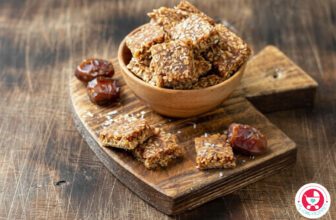
Weaning is the process of introducing solid foods to a baby while gradually reducing their reliance on breast milk or formula. It is one of the most exciting milestones in your baby’s growth journey, marking the beginning of independence and the development of lifelong eating habits.
But when should you start weaning? What foods are best for your baby’s first bites? And how can you make this transition smooth and safe? Let’s break it down.
Why Is Weaning Important?
Weaning is not just about food—it’s about growth, development, and building healthy habits. Here are the key reasons why it matters:
1. Meeting Nutritional Needs
By around 6 months of age, babies need more iron, protein, and other nutrients that breast milk or formula alone can’t provide. Weaning introduces a variety of foods that support healthy growth.
2. Supporting Physical Development
Learning to chew and swallow improves muscle strength for speech and eating. Picking up small food pieces also helps with fine motor skills and hand-eye coordination.
3. Encouraging Independence & Confidence
As babies start feeding themselves, they gain a sense of independence and explore different flavors and textures. This builds confidence around food.
4. Promoting Dental Health
Chewing solid foods supports the development of strong teeth and gums. Foods rich in calcium, vitamins, and minerals further protect dental health.
5. Reducing Health Risks
Research suggests that starting solids too early (before 6 months) may increase risks of allergies, obesity, and digestive problems. Starting at the right age helps reduce these risks.
When Should You Start Weaning?
- Most babies are ready between 4–6 months, but every child is unique.
- Look for weaning readiness signs:
- Sitting up with little support
- Showing interest in food
- Ability to hold food and bring it to their mouth
- Reduced tongue-thrust reflex (pushing food out automatically)
👉 Tip: Always check with your pediatrician before starting solids.
First Foods for Weaning
When starting solids, keep it simple, safe, and nutrient-rich. Begin with:
- Single-ingredient purees (mashed banana, apple, pear, sweet potato)
- Iron-rich foods (mashed lentils, pureed chicken, fortified cereals)
- Vegetables (carrot, pumpkin, peas, spinach – cooked & mashed)
Gradually move from purees → mashed foods → soft finger foods as your baby learns to chew.
⚠️ Avoid foods that are choking hazards such as whole grapes, nuts, popcorn, and hard raw vegetables.
Tips for a Smooth Weaning Journey
- Introduce one new food at a time and wait 3 days before adding another to check for allergies.
- Make mealtimes fun and stress-free—babies learn by watching parents.
- Don’t force-feed. Let your baby explore food at their own pace.
- Offer water in a small cup once solids begin, to build good drinking habits.
FAQs on Weaning
1. What is baby-led weaning?
Baby-led weaning is when babies are given soft finger foods from the start, instead of spoon-fed purees. It encourages independence but should be done under close supervision.
2. Can I continue breastfeeding during weaning?
Yes! Breast milk or formula remains a baby’s main source of nutrition until 12 months. Solids should complement—not replace—milk in the first year.
3. What foods should I avoid during weaning?
Avoid honey (risk of botulism), cow’s milk as a drink (before 12 months), salty foods, sugary snacks, and choking hazards.
Final Thoughts
Weaning is a beautiful milestone that requires patience, observation, and guidance. By starting at the right time, introducing healthy foods, and following your baby’s cues, you’ll lay the foundation for a lifetime of healthy eating habits.
Disclaimer: This article is for informational purposes only. Always seek advice from your pediatrician before making changes to your baby’s diet.
Disclaimer: This content was automatically imported from a third-party source via RSS feed. The original source is: https://drdad.in/weaning-baby-guide-when-how-start-solids/. xn--babytilbehr-pgb.com does not claim ownership of this content. All rights remain with the original publisher.






